What inspired you to become a teacher?
Any teacher is going to point to the teachers in their own past. I had some really inspiring, impactful teachers. One that I didn’t realize at the time was Mr. Gaston, who was my high school chemistry teacher. I really struggled with self-confidence and believing in myself. We were titrating hydrochloric acid with sodium hydroxide to produce table salt and water. The entire class had finished with their titrations and moved on, but I was still working because I wasn’t confident enough in myself to believe that I had done it correctly.
Mr. Gaston walked over to my lab station and asked me if I was done. I hesitated and said that I thought I was; he picked up my beaker and drank the contents. Looking back, I now know that he had been watching me and knew without a doubt that I was done and that all he was about to drink was saltwater.
That day made a profound impact on me, knowing that someone believed in me that much. He taught me to have confidence in myself and in my thinking, not letting me hide behind my fears and insecurities. I never thought of being a teacher until I was in college. My family and high school teachers kept telling me I would be a really good teacher. But, I have a lot of teachers in my family. So I said, ‘Absolutely not. I don’t want to be like the rest of you.’
When I was in college at Harding University, I rediscovered the love that I had had for chemistry in high school. I was going to be a straight chemistry major. My goal was to work in research and development for pharmaceuticals. Essentially, I wanted to take drugs that were in the pipeline for development that didn’t have good side effects and look at the structure to figure out what was causing those side effects and if we could get rid of them without changing the structure that makes the drug effective. The farther I got in chemistry, I was enjoying it, but I realized that I started really liking the study groups and talking to other people more, especially explaining something to them in a new way that made them see it clearly.
The more I did that, the more I realized that all those people back in high school were actually right; I should be a teacher.
How would you describe your approach to working with students?
I always try to understand my students’ current thinking and listen. I think we have too much of, ‘I’m going to tell you what to memorize, and you throw it out to me on a test.’ I’m much more interested in teaching students how to think, problem-solve and critically approach problems.
In order to do that, I need to know where they are right now. So, I do a lot more question-and-answer. It’s easy for students and adults to box things up. For example, one of the things that my chemistry class is struggling with a bit right now is bridging the gap between math and science. We are doing some algebra with average atomic mass. I know they know the algebra, but before, algebra has been in the ‘algebra box,’ and science has been in the ‘science box.’
It’s about showing that what we’re teaching here is not just applicable in this room. It’s applicable everywhere, and all of the things that you’re learning come together and interact.
What’s a memorable moment from your time at Coppell High School?
I really enjoy letting kids see the applicability and relevance of what we’re doing. There was a gentleman about five or six years ago, and we were doing a lab on stoichiometry: the mathematical study of how much reactant produces how much product. We had a chemical reaction, and I challenged them to figure out how much product they should end up making mathematically.
Then, they were supposed to go out in the lab and see how close they got to their calculated value. I had a gentleman who did calculations, and he goes back to do the reaction and let his product cool. He measures the mass, and the only mass present is the mass that he has predicted.
All of a sudden, you just hear this sudden gasp and he says, ‘Stoichiometry and chemistry are real!’ That’s one of my favorite moments because I saw right there that a bunch of things just connected and slammed into place for him all at once.
What do you love most about working at Coppell High School, and what are your goals for this school year?
I love the students, and I really love our administration. They encourage me to try new things and take risks. At the end of the day, it’s about the students and what they need. If I have something new and different to try that will benefit the students, then the administration is right there behind me.
As for my goals, I really want to work on my work-life balance. I like to read mystery novels and watch period historical dramas. I also have two children, Ashlee and Emmalee, who I love to spend time with. I will also be testing out a new curriculum, so I need to make sure [my students] are prepared for this new version of the test. Every seven years, IB reassesses each curriculum and redoes it. It is 80% the same, but a lot of it has been rearranged. There is about 20% new material as well. IB also has a required research project, and the guidelines on that research project have changed.
My number one goal every year is to teach students how to problem solve and see the chemistry around them. I was actually just chatting with one of my seniors who is doing a research project on benzoate, which is a food preservative, and ascorbic acid. Those two ingredients react together to create benzene, which is carcinogenic, but only at very specific and highly unlikely conditions. A restaurant chain was using the possible reaction to try and promote their business because they don’t use sodium benzoate in their food. But, if you’re not overwhelmed by the scariness of that claim, you can research it and find out that the temperature that this reaction needs in order to happen is not going to be experienced by the types of food products that both contain ascorbic acid and sodium benzoate. This ties into my goal of training students to look at these things constructively and actually understand what’s being said, not being swayed by big and scary science words.
What advice would you give to new CHS staff members?
My advice would be to slow down; there’s a lot of information coming at you. You don’t need to be perfect from day one. This is my 18th year in the classroom, not all at CHS. I’m not perfect. No one is perfect. At any point, there are gonna be some lessons that go really well, and there are going to be some lessons that go really poorly. There are going to be some students that you work hard with, and at the end of the day, you don’t feel like you got them where you wanted them to be. Ultimately, do your best and work with joy. If you’re not happy doing what you’re doing, you’re not going to do it well.
Follow @CHSCampusNews and @deepali0914 on X.




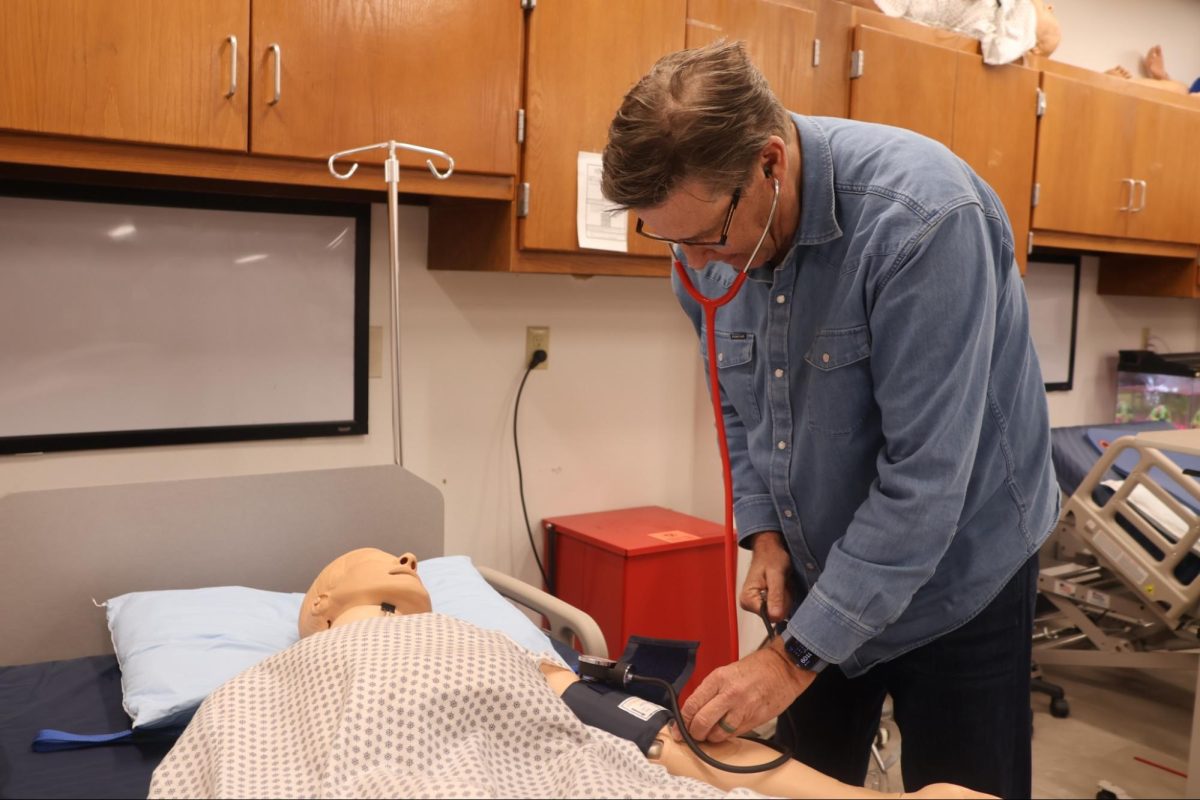
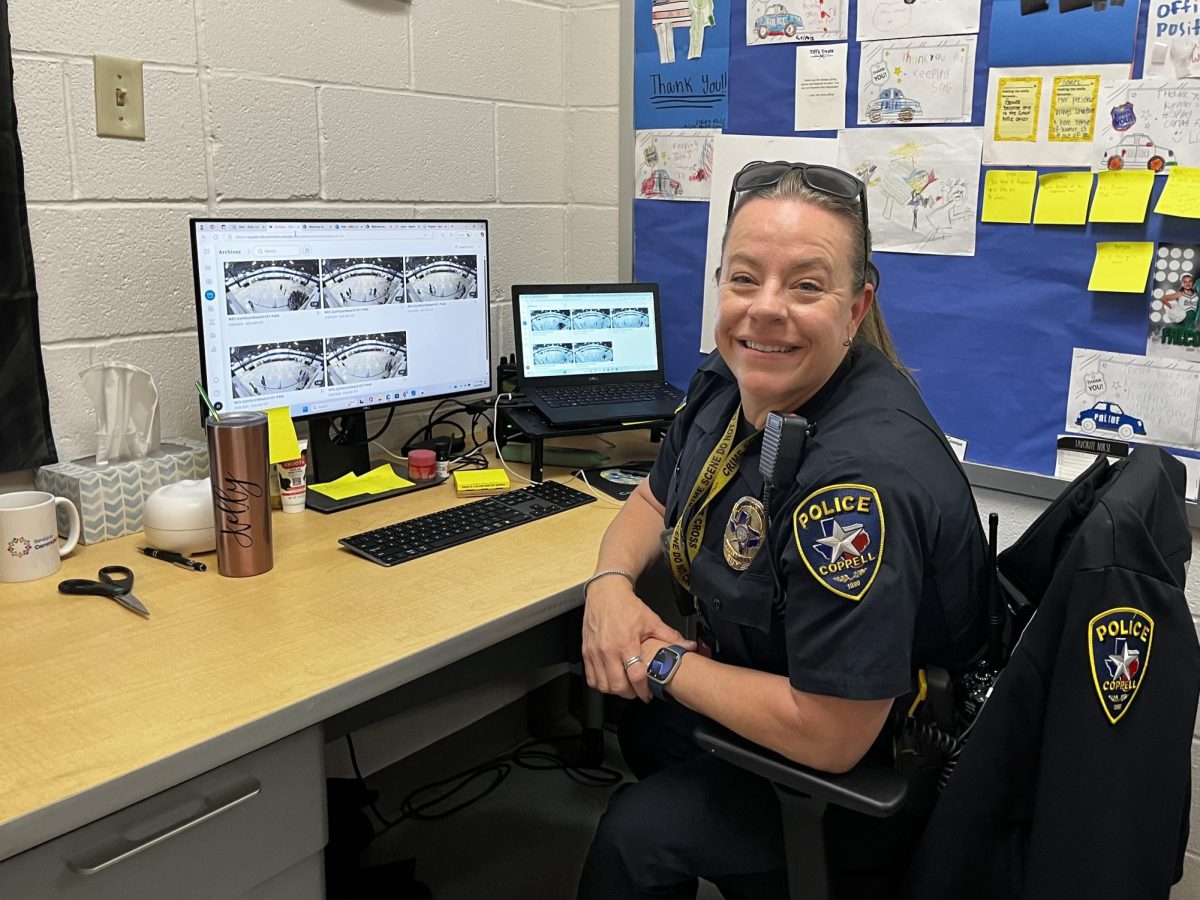
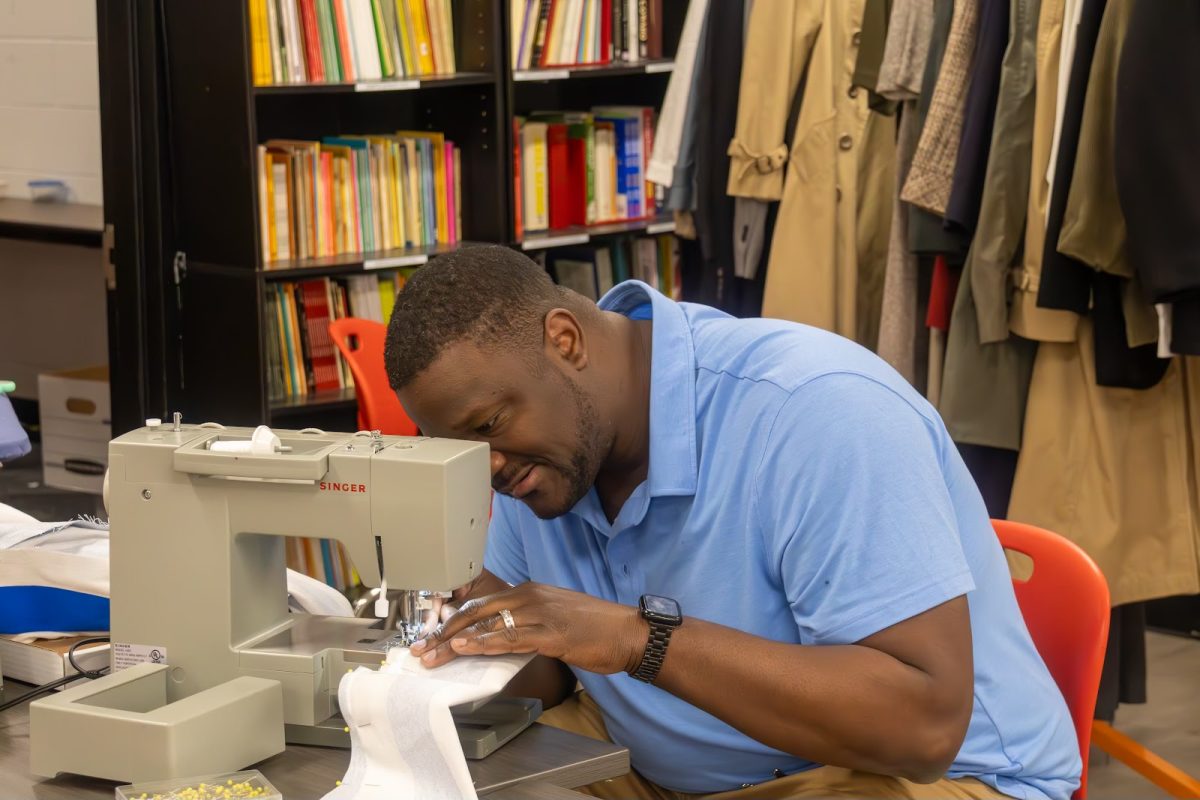

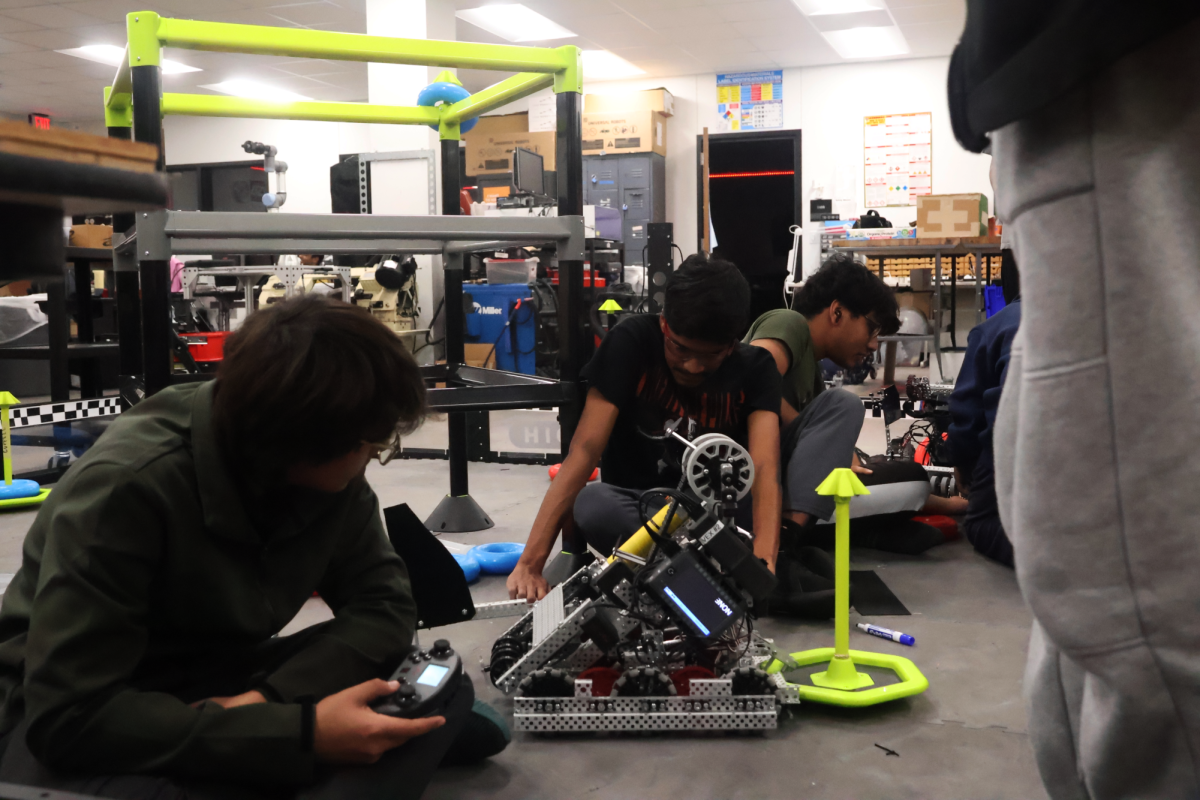
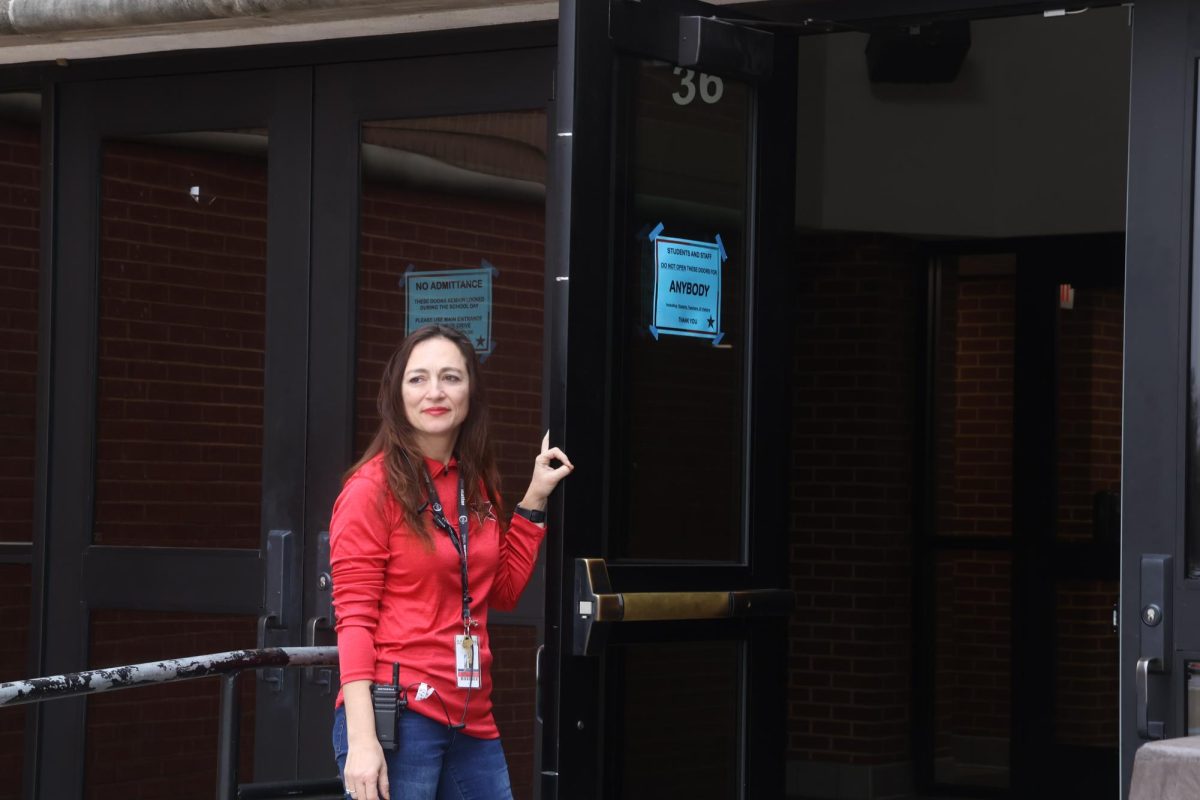

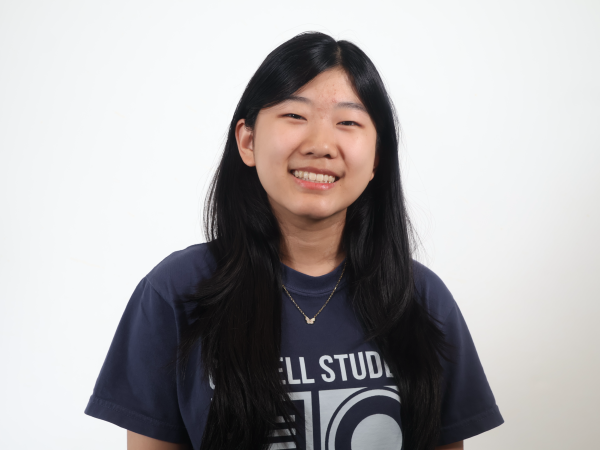
Aunt Jody • Sep 20, 2024 at 2:22 pm
Love this teacher/niece with my whole heart! She is a wonderful teacher, mom, wife, daughter, sister and aunt! A blessing to all that love her! Coppell ISD is fortunate to employ her! Great interview!